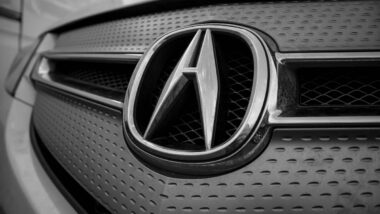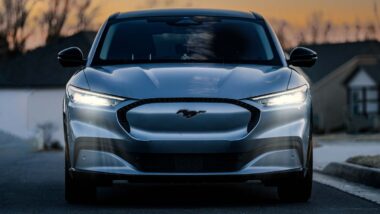Top Class Actions’s website and social media posts use affiliate links. If you make a purchase using such links, we may receive a commission, but it will not result in any additional charges to you. Please review our Affiliate Link Disclosure for more information.

Honda class action lawsuit overview:
- Who: Plaintiff Deneen Nock has filed a class action lawsuit against Honda Motor Co. Ltd. and American Honda Motor Co. Inc.
- Why: Certain Honda and Acura vehicles have an engine defect that renders them inoperable, putting occupants at risk of collision.
- Where: The Honda class action lawsuit was filed in California federal court.
A new Honda class action lawsuit alleging certain vehicles contain an engine defect that can cause them to become immobile and inoperable.
Plaintiff Deneen Nock alleges the Honda defect affects the following vehicles equipped with a 3.5L engine and nine-speed automatic transmission:
- 2016-2020 Honda Pilot
- 2015-2020 Honda Odyssey
- 2015-2020 Acura TLX
- 2015-2020 Acura MDX
The class action lawsuit alleges these vehicles are equipped with an Auto-Idle Stop feature intended to improve the vehicles’ fuel efficiency. When the feature functions correctly, the engine shuts off as the vehicle comes to a complete stop and automatically restarts when the brake pedal is released.
However, when this Auto-Idle Stop feature is engaged in vehicles affected by the alleged Honda defect, the automatic engine restart feature is not triggered when the brake pedal is released, posing a significant safety risk to the vehicle occupants, according to the class action.
Because this alleged Honda defect renders the vehicles immobile and inoperable, drivers may face significant costs associated with towing the vehicles and paying for ineffective repairs and/or unnecessary replacement parts, the lawsuit says.
Defendants concealed Honda defect from consumers, class action alleges
Nock alleges defendants Honda Motor Co. Ltd. and American Honda Motor Co. Inc. (AHMC) have known about the Honda defect since at least 2018, when AHMC issued an internal communication acknowledging customer complaints about the issue and requested to visit authorized service departments to inspect the affected vehicles.
Numerous Honda and Acura drivers have filed complaints about the Honda defect with the National Highway Traffic Safety Administration (NHTSA), prompting the agency to launch an investigation into the issue on June 3, 2022, the class action says.
Despite knowing about the Honda defect, the defendants have failed to notify consumers about the issue, failed to issue a recall and failed to compensate vehicle owners, the plaintiff says. Instead, they have allegedly “wrongfully and intentionally” concealed the defect from consumers.
“No reasonable consumer expects to purchase or lease a vehicle containing a concealed defect that fails to automatically restart the engine, thus stalling the vehicle on public roadways, and creating a risk of collision and danger to the vehicle and its occupants,” the class action states.
The Honda class action lawsuit asserts claims for breach of warranty, fraudulent concealment, negligent misrepresentation, unjust enrichment and violations of the North Carolina Unfair and Deceptive Trade Practices Act.
Honda was recently hit with another class action lawsuit alleging certain vehicles are affected by a turbo direct engine defect that can cause catastrophic engine failure.
Have you experienced the Honda defect? Tell us about it in the comments.
Nock is represented by Jennifer L. Joost of Kessler Topaz Meltzer & Check LLP.
The Honda defect class action lawsuit is Deneen Nock, et al. v. Honda Motor Co. Ltd., et al., Case No. 2:23-cv-00109, in the U.S. District Court for the Central District of California.
Don’t Miss Out!
Check out our list of Class Action Lawsuits and Class Action Settlements you may qualify to join!
Read About More Class Action Lawsuits & Class Action Settlements:















26 thoughts onHonda class action alleges some vehicles have engine defect that renders them inoperable
honda has had a problem with there v6 cam shafts starting in 2000 with the 3.0 accord. How do I know. I am an engineer I fix cars and I have a 2000 accord in my shop with the thrust out in both cams and they are flat. My personal 3.5 ridgeline is a 2007 had the same problem. They have a tsb on it , but dont tell anyone. I am so suprised this has not been sue over yet.
I have a ²012 Honda crosstour it has the j35z2 engine and it’s been consuming massive amounts of oil it’s whole life and now it’s motor is completely gone I’ve put top doller oil in it for years and it’s cost me a lot it’s whole life I believe that it’s due to the vcm control and I am very disappointed in this car .I have had this car from its first mile I have reliously changed my oil from day one with royal purple and I don’t care who you are that’s hands down #1 oil and it hasn’t even last me 200000 miles what a pile Honda crosstour hi doller car thanks alot honda